How do we decide?
Emotional Intelligence & Better Decisions
We each make scads of decisions each day. How many? One popular claim is 35,000. From the banal choices about how much sugar to add to our coffee, to deeper considerations about who to trust or love, our brains are constantly assessing & concluding… often with little or no conscious thought [1]. What then, drives these choices? And can current neuroscience help us make better decisions to get better results?
The Long & The Short:
Deciding to Survive
Short Term Choices
The decisions we make can have profound implications – for ourselves, those around us, and even the planet. Humans have proven that we are often terrible decision-makers. From electing Hitler to deciding that the sun, moon, stars, and planets all orbited the earth, history is littered with examples of devastating choices. At this point of human history, we seem bent on self-destruction – from volatile elections, to cutting 18 million acres of forest per year [2], to genocide, to horrific treatment of refugees, humanity does not seem to have learned to make better decisions for our long-term wellbeing [3].
That sad reality is echoed in our personal lives, where we make short-term choices, even when we know they’re bad for us [4]. We buy cigarettes despite labels that they’re deadly. We let our children be addicted to social media. We over-consume and under-care.
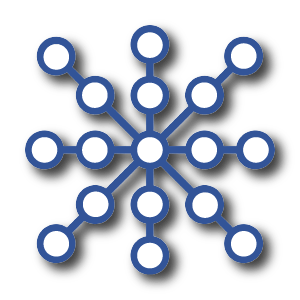
Feels Like:
an Important Decision
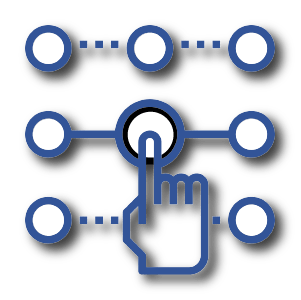
Role of Emotions in Decision Making
Each calendar quarter, at Six Seconds we examine a theme to explore ways that emotional intelligence can support a thriving future. From July to September of 2018, we’re diving into decision-making, and the role of emotions in the process.
Volunteer EQ Network Leaders in hundreds of cities around the globe will hold “EQ Café” events, bringing together people interested in practicing EQ to explore the role of emotions in our decisions [5]. This quarter’s EQ Café dives into the criteria we use for assessing choices, and how giving more attention to emotions could help us do better. Meanwhile, Six Seconds Allies around the globe will be engaging in discussions about these challenging themes.
At the same time, the new Unlocking EQ Profile from the best-in-class SEI EQ assessment is available for free for our certified practitioners to raise awareness of how to practice EQ [6]. We’re also launching a new Group Report to support the development of emotionally intelligent teams.
State of the Heart:
Trends in Emotional Intelligence
Measuring Decision Making
Two years ago, our State of the Heart research reported one reason for poor decisions: Emotional intelligence in the world has declined steadily since we started tracking the trends in 2011 [7]. Our researchers are examining the most extensive database of the world’s emotional intelligence, and over the summer we’ll be releasing key findings.
This year’s State of the Heart will reveal some potentially good news: While scores have declined since our last report, there was no significant change from 2016 to 2017… so just maybe we’re seeing the end of this downward trend, and as we grow more EQ, can we use it to make better decisions? The research says yes!
Later this summer we’ll share additional key findings on EQ & better decisions — including which EQ competencies are most critical (hint: It may be that optimism is one of the most important contributors to being satisfied with our choices) – sign up to be among the first to see these findings as they’re released.
We’re mining the latest data, so look for more fascinating tidbits for better decisions.
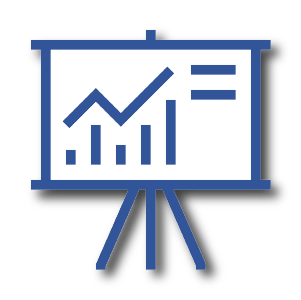
Blame Our Brains:
The Neuroscience of Bad Decisions
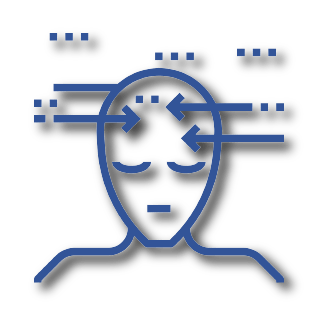
Your Brain on Decisions
New studies of how the brain makes decisions yield rich data. For example, while “common sense” says we need to ignore emotions to make better choices, current research suggests that the opposite is true [8]. Intentionally assessing feelings seems to be key to making more successful choices [9].
While our brains have a tendency to make decisions on very short-term criteria – such as what will give us a temporary energy boost – there is hope. For example, Pausing even a fraction of a second can help you make better decisions. Dr. Jack Grinband’s research at the University of California Davis has found that “postponing the onset of the decision process by as little as 50 to 100 milliseconds enables the brain to focus attention on the most relevant information and block out irrelevant distractors.” [10]
We’d love to hear from you:
In the comments below….
Is there a book you’d recommend that helps people assess and evaluate with more care?
Have you succeeded in teaching others to make good decisions – what’s worked for your learners or those you mentor, coach, or parent?
What has helped you make better decisions in your own daily life?
Train Your Brain:
Share Neurosci Knowledge with Friends
Annotated Research from this article
[1] A Microsoft ad claimed we make 35,000 decisions per day, and while this number is widely quoted online, I was unable to find any actual research. In this study about mindless eating, researchers did a more careful analysis to assess that we make around 219 decisions per day just about food. In her TED talk, Sheena Iyengar of Columbia University says we make 70 conscious decisions per day, and hopefully, when we’re doing so, we can make better decisions. So, somewhere between 149 and 34,930 are unconscious?
[2] There are many studies on the rate of deforestation and other decisions humans are making that imperil the long-term health of our home. The news ranges from bad to devastating. Here is a summary about deforestation.
[3] Wellbeing was our quarterly theme at the end of 2017. Unfortunately, we learned that wellbeing is declining. Fortunately, we can do better and emotional intelligence is a key to improving wellbeing.
[4] One fascinating study about decisions found that we will eat snacks that we know to be unhealthy because they provide a quick burst of energy – even though other snacks will provide more energy over time. Our brains seem to have a near-constant craving for more energy.
[5] Volunteer EQ Network Leaders are working around the globe toward the vision of a billion people practicing emotional intelligence. Each quarter, Six Seconds publishes an “EQ Café” which is provided free in hundreds of cities.
[6] SEI, the Six Seconds Emotional Intelligence Assessment, is part of a complete suite of emotional intelligence tests used to build awareness and support people to grow their EQ. As explained in Six Seconds’ Practitioner Knowledge Base, the Unlocking EQ Profile is an introductory report using the world’s first artificial intelligence for emotional intelligence. We hope this will help people make better decisions about themselves and our world.
[7] Utilizing a randomized sample from over 100,000 participants around the world, the State of the Heart research attempts to track the changing trends on EQ. This year’s State of the Heart (SOH) data is being used in articles from March through August, culminating in a report late in the year.
[8] Over the course of the theme we’ll be sharing key findings from many studies about decision-making and the role of emotions. In this study on rational decisions, researchers found that people who were highly logical in their approach ignored the feelings that said: “You may be on the wrong track,” and became increasingly biased.
[9] Given our increasing understanding of the role of emotions as a resource for effective decision-making, how do we avoid being overly-influenced by feelings that are rampant? One key finding is that naming feelings creates an objectivity to our own emotional experience.
[10] This study makes a key distinction: Many of us prolong decisions, laboring over choices. That does not help. However, a small delay before we start making a decision has a strong benefit to the quality of our choices.
What’s new in emotional intelligence?
Helping Others Achieve Overall Well-being and Healthy Connections: How Emotional Intelligence Guided Pamela Barker’s Career Path Growth
Pamela Barker’s journey began with healing bodies, but it was her discovery of emotional intelligence that unlocked her true purpose: helping others achieve overall well-being and healthy connections. From her days as a physical therapist to becoming a passionate EQ coach, Pamela’s story is one of transformation, resilience, and the power of connection. Her experience shows that real change starts from within.
Harnessing Emotional Intelligence: How Sara Canna Supports Employees and Transforms People’s Lives at the World Health Organization (WHO)
Emotional intelligence is more than just a buzzword—it’s a transformative tool that can reshape how we navigate challenges, build relationships, and thrive in demanding environments. Discover how Sara Canna brought EQ to the World Health Organization, empowering employees to manage change, stress, and personal growth.
From Corporate Consultant to Coach: Elise Jones’ Emotional Intelligence Journey-Voices from the Network
Elise Jones transformed her career by embracing emotional intelligence, shifting from a corporate consultant to a passionate EQ Coach. Through authentic connections, she found deeper fulfilment, proving that strong relationships are key to a happier, more meaningful life.
Want to Manage Your Emotions More Effectively? Find Time to Journal About Challenging Experiences
Daily journaling to reframe unpleasant events can significantly reduce depressive symptoms, lessen stress, and increase life satisfaction.
A Journey through Empathy & Optimism: Amy Jimison in Voices from the Network
When you feel stuck and can’t see a way out, how do you navigate change? Certified Coach and leadership expert Amy Jimison shares her approach.
Trust, Diversity & Emotions: Key Strategies from EQ Diversity Practitioner Michael Eatman – Voices from the Network
Imagine a coaching client struggling with identity, belonging and diversity. How can you use emotional intelligence to help them build trust and overcome self-limiting beliefs to thrive?
- How Emotional Intelligence Coaches Use Emotions in Goal Setting - October 2, 2024
- 3 Winning Strategies for Successful Change Leadership: Coaching with Emotional Intelligence - September 4, 2024
- 3 Emotional Intelligence Tips for the Essence of Coaching - July 31, 2024

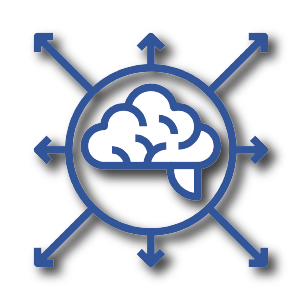
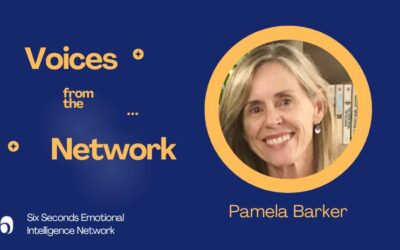

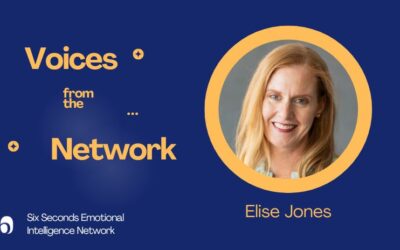


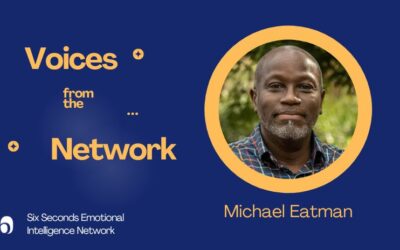
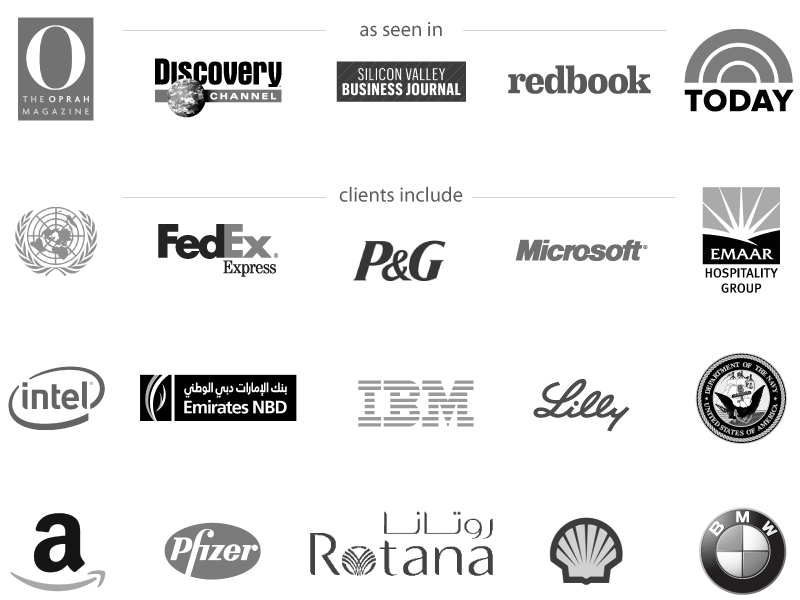
It is possible to change our thinking and move ahead with healthy and nurturing attitudes. Nurturing ourselves and others should be at the heart of all human motives. ‘Six Seconds’ remains for us all, at the heart of choosing better ways of coping with the realities of our lives. I am reading MINDSET by Dr. Carol Dweck- one resource recommended by a colleague, and find it quite interesting. As an elementary educator, my goal in the upcoming school year is to promote wellbeing among my pupils, fellow staff, and parents. Thank you for providing EQ resources; you’re providing me with every reason to wear my “Yellow Hat” for children. The hat is my code for: “Why not spread sunshine today?”
Wonderful! Thanks for a timely reminder of how we should make better decisions. Unfortunately, our decision-making gets even worse as we get more stressed, and there are multiple factors driving us make more decisions with less resources: It’s here we need emotional intelligence more than ever before. No doubt, ‘Six Seconds’ pause plays a crucial role in shaping our future.
Thank you for reaching out to provide EQ information that continues to be an important part of my life. I share as much as I can with children, teens and family members